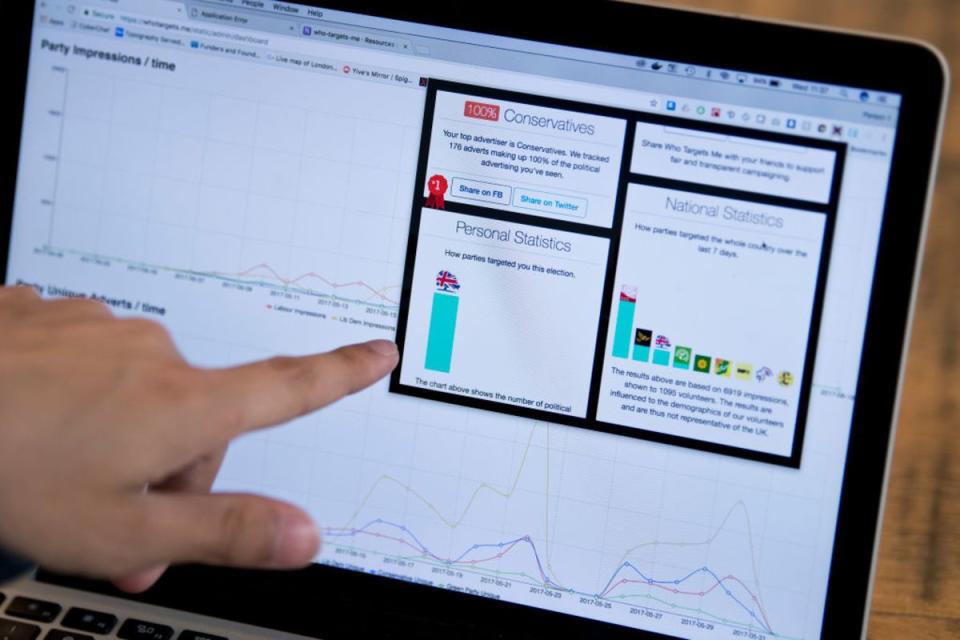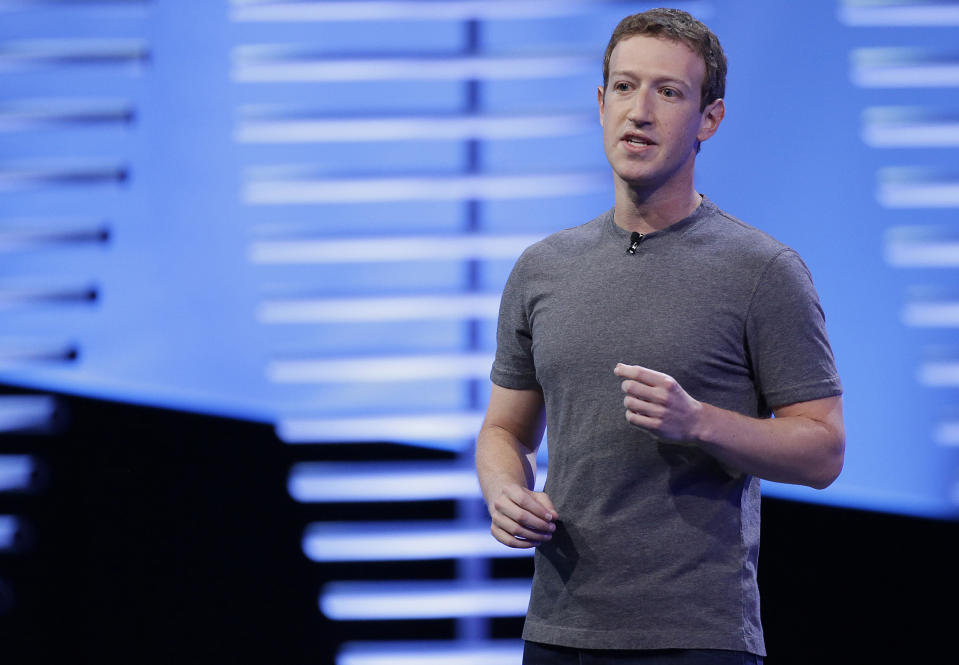How to tell if your Facebook has been targeted by Russian-style 'dark posts'

This week, Facebook revealed that up to 126 million people had seen Russia-linked content in the run-up to the American election.
It was a disturbing figure – not least because only 130 million people voted in the election, and Russian operatives appear to have targeted ‘swing’ states where victory hung on a few thousand votes.
The adverts and content posted by Russian operatives focused on divisive issues such as race and religion – with one memorably showing Hillary Clinton with devil horns, fighting Jesus.
Most popular on Yahoo News UK:
A third of young Britons are refusing to wear a poppy for Remembrance Sunday
North Korean defector warns pre-emptive US strike would trigger ‘automatic retaliation’
Egypt opens ‘cursed tomb’ at Great Pyramid of Giza for first time
Plague spreads in Madagascar as people dig up relatives who died from Black Death and dance with corpses
Here’s what aliens will really look like, according to science
But how do you know if you are looking at content created by intelligence agents – or ‘dark adverts’ targeted at you, personally? Here’s a quick guide.
What are ‘dark adverts’?
This ad, paid for, by Russians, in rubles https://t.co/0iv7Fff1Q9 pic.twitter.com/xCuiZVLEqD
— Shan Wang ☃ (@shansquared) October 31, 2017
So-called ‘dark adverts’ on Facebook are personalised political adverts which only you can see – and which some have blamed for Brexit and the rise of Donald Trump.
The adverts appear in user’s News Feeds – and could be used, for instance, to persuade certain voters to stay at home.
So-called ‘dark adverts’ are used widely by political parties, not just intelligence operatives, with British parties having used them widely in the last election.
They’re known as ‘dark’ because they’re aimed at specific groups of people – so everyone sees a different advert and (in theory) adverts could be tailored to manipulate voters based on their individual psychology.
Who sees them?

Facebook’s targeting tool allows advertising buyers to target specific groups (such as by age range, or by location) – or to ‘retarget’ people who have visited other websites.
Russian operatives used Facebook’s ‘retargeting’ tool to identify people who might be susceptible to propaganda adverts – then bombarded them with ads.
The alleged operatives created convincing-looking websites which focused on issues such as immigration and Islam – then used Facebook’s ‘retargeting’ tool to track who visited them.
Users who visited them were targeted with adverts such as a black woman ‘dry firing’ a rifle and Hillary Clinton behind bars.
How can I tell if I am looking at one?
It’s very difficult unless you use special tools (below) During the 2017 election, the Conservatives targeted voters in marginal seats with attack adverts targeting Jeremy Corbyn.
These were not visible to people elsewhere, but were visible to voters in areas where the Conservatives believed it would make a difference.
The Russian campaign ads delivered during the American presidential election were cruder, and delivered to voters who the operatives believed would be susceptible.
Images included a black woman dry-firing a rifle, Hillary Clinton behind bars, and Hillary Clinton as Satan.
Is there a way to know who’s targeting me?

A browser extension ‘Who Targets Me’ is available for both Chrome and Firefox, and aims to pick up and record political adverts.
To use Who Targets Me, you install the extension, and fill out a short form with their postcode – and then the extension monitors for targeted ads.
The British team behind Who Targets Me found that – for instance – the hard-right AfD party in Germany were targeting voters interested in Angela Merkel with messages about refugees.
What does Facebook know about me?
By using Facebook, you agree to share a vast amount of data with the site, including data which can be used to target adverts.
This includes data about your location, your interests, and even your psychological state.
Facebook faced controversy earlier this year when a leaked document showed it was using data to analyse if 14-year-old children felt, ‘worthless’, ‘insecure’ or ‘anxious’.
Cambridge University researchers have conducted long-running research into just how much one can learn from people’s Facebook posts and ‘Likes’.
The Magic Sauce tool produced by the Cambridge Psychometrics Centre is an ongoing psychological experiment where the tool uses analytics to build a psychological profile of you – based on your Likes.
You can try it here – applymagicsauce.com – if you log in with your Facebook details.
Facebook said it was going to clamp down on political adverts – does that mean I’m safe?

Political parties will henceforth be required to declare who they are targeting, what they spent and what the adverts say, Facebook promised, in the wake of the Russia story.
But it’s very easy to buy adverts on Facebook, with the approval process lasting seconds, and it may be hard to decide what is and isn’t a political advert.
It’s worth noting that the Russian campaign in America also involved large amounts of posts created by fake accounts, as well as adverts.
In fact, estimates suggest that more than 100 million people were reached using non-advert content – so it may well be possible for intelligence operatives to attempt to influence elections, despite the crackdown on advertising.
Social media and PR analyst Bex Bright says, ‘Social media is a relatively low-cost platform, and the way it operates makes it possible for any image, video or opinion to spread virally, and the use of the correct hot-button words will of course support that spread.
‘Looking purely at adverts will not present the full picture, you cannot discount the role of fake accounts, fake pages, hashtag campaigns, fake news, automated bots and so on. Fake pages, for example, could create controversial or sympathetic content to engage followers who will then be targeted by specific ads.
‘The nature of Facebook means that adverts and posts are susceptible to manipulation, with minimal to no controls in place, Facebook was unaware it was happening and couldn’t or didn’t stop it. The daunting element of this is that it doesn’t stop with this one platform, all social media and advertising platforms are thrown into the mix as money talks.’

 Yahoo News
Yahoo News 
